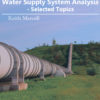The global climate is changing, and will continue to change, in ways that affect the planning and day to day operations of businesses, government agencies and other organizations. The manifestations of climate change include higher temperatures, altered rainfall patterns, and more frequent or intense extreme events such as heat waves, drought, and storms. The ability to manage climate risk is a measure of development. Proactive policymaking and planning means taking action now to prevent and/or reduce future anticipated impacts, and can include no regrets strategies such as technologies and practices for improved efficiency. However, an exclusive focus on ‘no regrets’ strategies can lead to the false idea that there are no trade-offs. Better protection from, and resilience to, climate variability is a clear measure of development. Climate variability and extremes, such as floods, droughts and storms, severely affect livelihoods, economic performance and key assets. The impacts of such events can have a disproportionate effect on developing economies and people, and can be a major set-back to economic growth and development.
This book ‘Climate Management’ covers detailed discussions of climatic change dynamics in selected regions as well as new innovative ways of observing climate change, evaluating climate risks, and predicting impacts. It covers that information needs required to inform decision making for responsive, proactive and robust policymaking and planning are overlapping, particularly as all three rely on the identification of vulnerabilities, hazards and risk as foundations for identifying strategic decisions and alternatives. Those interested in refreshing the fundamentals of climate change and climate variability will find a very review of the status of knowledge on the subject, as well as a balanced interrogation of available evidence. This book is intended to be useful to researchers, practitioners, and policy makers.













